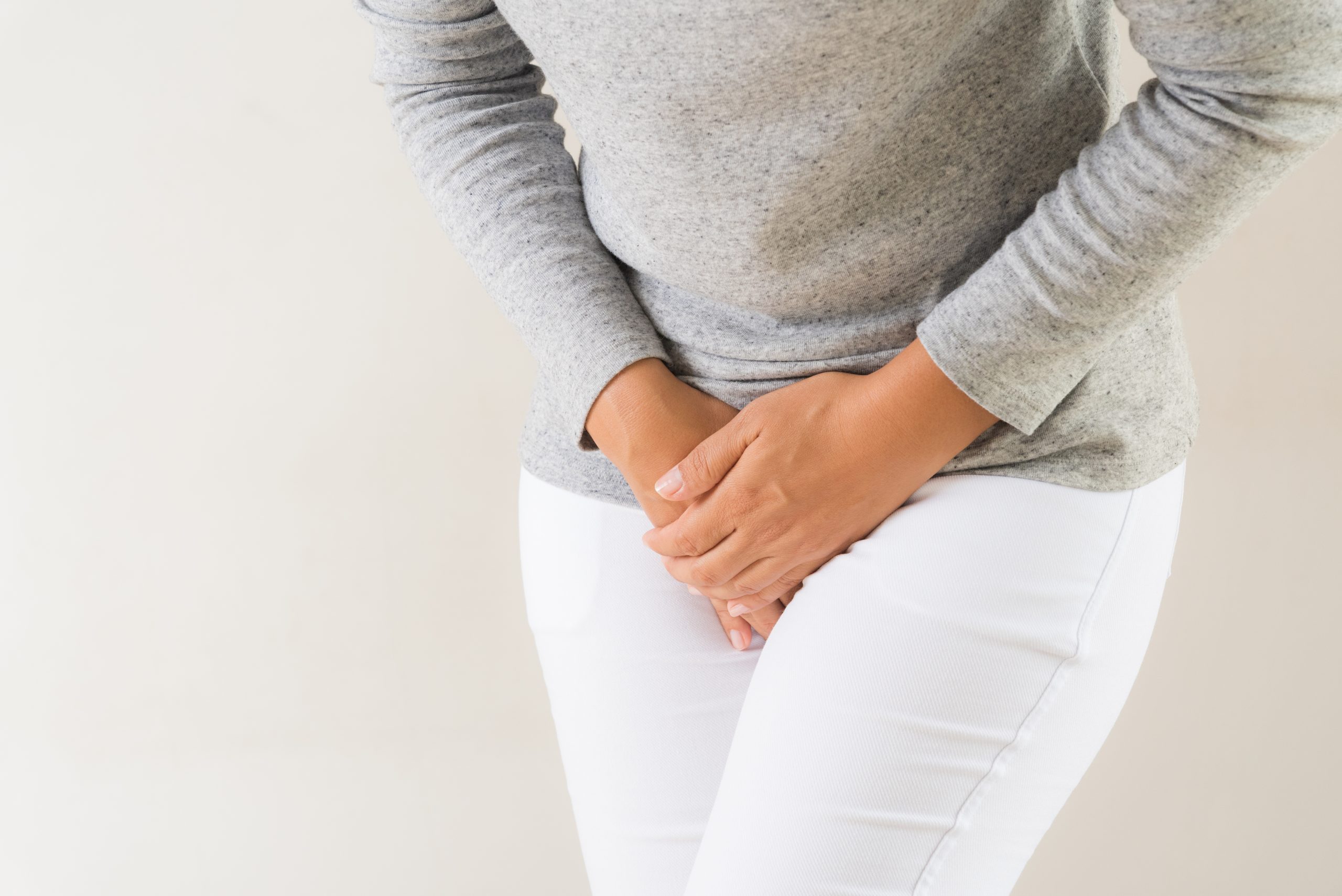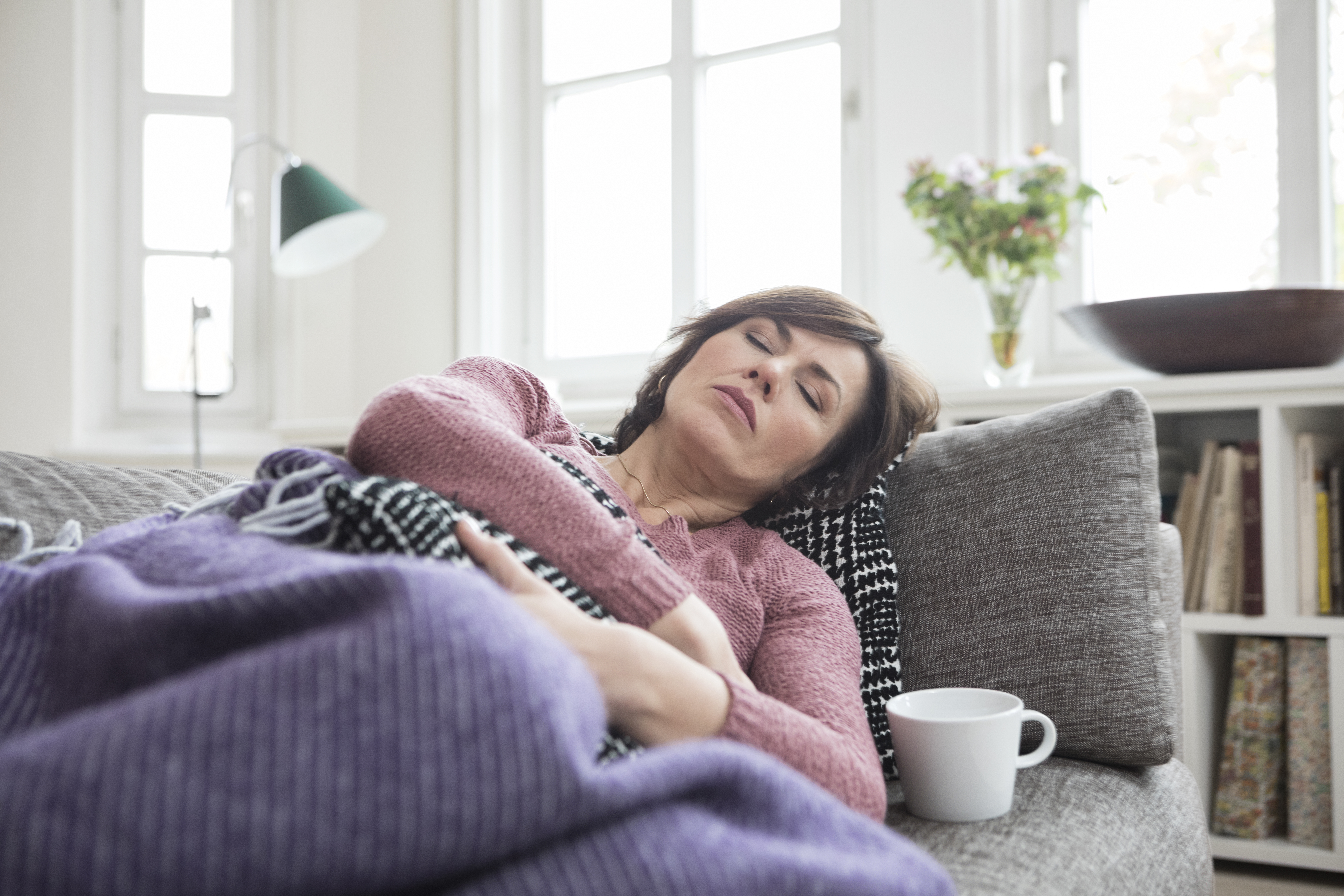A gynaecologist reveals whether home remedies for a UTI really work
Can home remedies for a UTI work? w&h investigates...

A UTI (urinary tract infection) can be painful, irritating, and downright tiresome. And sometimes, they can even be a little bit troubling for our overall health. But do home remedies for a UTI work?
You usually know if you've developed a UTI if you're peeing way more than usual, experience burning when you do go, smelly, cloudy pee, or if you have a random, dull ache in your stomach.
A UTI will leave you feeling generally groggy too, with an uncomfortable feeling below your waistline.
Women are actually far more likely to get a UTI than men, with almost half of all women guaranteed to experience at least one UTI in their lifetime according to the US National Library of Medicine.
MORE:Your vagina is ageing: a timeline of changes down there, from your 30s to your 60s
Urinary tract infections are sometimes caused by bacteria from your *ahem* excrement, entering your urinary tract (or, urethra), either by improper wiping, sex, or pure chance. Women have a far shorter urethra than men, explaining why UTIs happen far more to them. They can also occur during pregnancy, or to people who have a weakened immune system or conditions that block the urinary tract.
But some things can increase your risk of getting a UTI include:
Sign up to our free daily email for the latest royal and entertainment news, interesting opinion, expert advice on styling and beauty trends, and no-nonsense guides to the health and wellness questions you want answered.
- having sex
- wiping your bottom from back to front after going to the toilet
- being younger than 1 or older than 75
- being pregnant
- using adiaphragmfor contraception
- havingdiabetes
- having a weakened immune system
A trip to the doctors can normally have you feeling better pretty quickly, with most GP's likely to provide antibiotics in order to treat the infection. However, Caroline Overton, Consultant Gynaecologist and Spokesperson for the Royal College of Obstetricians and Gynaecologists, explained that antibiotics are not always needed. She said, "Mild cases may get better by themselves within a few days."

You'll need to make sure to take the whole course, to stop your symptoms coming back, and should generally start feeling better in a few days. Very rarely will you experience more severe symptoms of a UTI, which could the need for a hospital stay and further tests. However, this is normally more common in men, children, or older people.
It's important that you do visit your GP, as, left untreated, UTIs can develop into something pretty nasty, with the potental to spread to your kidneys - which could make you seriously unwell. Caroline told w&h, "Women should seek help urgently from the GP or by phoning 111 if they have symptoms of a kidney infection; symptoms include pain in the sides or lower back, a very high temperature, feeling hot and shivery, nausea, vomiting and diarrhoea."
But for any normal UTI, while you wait for your treatment to kick in, or if you've been told you don't need antibiotics, it is possible to treat the irritating symptoms with some helpful home remedies. They can give you some relief from the irritation, and make you feel more comfortable.
So how effective are home remedies for a UTI? Some home remedies for a UTI can also help to prevent infections returning in the future - so read on if you want to stay healthy and happy 'down there'...
Home remedies for a UTI
A supplement called D-Mannose
Not strictly a home remedy, as you're unlike to have this already sitting waiting in your cupboard, but the NHS advise that D-Mannose can potentially help to treat UTIs by stopping certain types of bacteria from sticking to the walls of your urinary tract.
Gynaecologist Caroline Overton explained that rather than treat UTIs, the evidence suggests that it's more of a preventative measure. “The NICE guidance on UTIs reports a study that suggests that compared to no treatment, D-Mannose reduces recurrent UTIs in non-pregnant women."
And if you're pregnant, it's best to just steer clear, given the lack of research on the supplement, "Pregnant women should be cautious about using D-Mannose as there has not been enough research.”
D-Mannose comes in tablet form or powder form depending on how you prefer to take it, and can be bought from the likes of Holland & Barrett.
Cranberry juice or tablets
Cranberry juice is the UTI home remedy we've likely all heard of already - but does it actually work? Caroline has debunked the swirl of myths and theories surrounding the idea - revealing that while it won't cure UTIs for you, it can help to prevent them.
She said, "“There is a compound within cranberries which prevents bacteria from sticking and causing infection. There has been some research to suggest that cranberry juice or tablets can help with the prevention of UTIs, but they are not recommended to treat established infections.
But research is debated. "One study suggested that drinking 240mls of cranberry juice every day for 3.2 years prevented one recurrent UTI - and that’s a lot of cranberry juice!"Caroline told w&h.
MORE:A no nonsense guide to normal vaginas
You may also need to be careful not to drink too much cranberry juice if you're taking any blood-thinning medication. Caroline told us, "Cranberry juices often contain additives and a lot of sugar and they can interact with the medicine warfarin which thins the blood, so may cause other health issues in some women."
Avoid sex
Given that UTIs can themselves be caused by sex, it's best to steer clear until you're feeling better.
“With a UTI, the bladder and urethra (the pee tube) are inflamed and tender, " Caroline said. "Sex can be uncomfortable when you have a UTI. The urethra in women is short (only 3-4cm long) and sex can push bacteria into the urethra.”
Avoid making it worse - we'd recommend waiting a few days from when you first notice the infection.
Drinking plenty of water
Although it's always a good idea to drink as much water as possible whether you have an infection or not, keeping your fluid levels topped up during a UTI can actually provide some real relief and can even help to rid you of the painful symtoms. Caroline explained, “It is very important for women to drink lots of water when they have a UTI, as it can help to flush out infection."
Applying heat to your stomach
When you have tummy troubles of any kind, a good old hot water bottle can provide immeasurable comfort. And it's not just a placebo effect - popping something warm on your stomach can actually help to ease the pesky symptoms of a UTI.
"A hot water bottle or heat compress can help soothe the pain of a UTI. Paracetamol can be taken as a painkiller, but always check with your pharmacist" Caroline said.
Vitamin C
Vitamin C (also known as ascorbic acid) is essential for keeping your cells and skin healthy, as well as helping to heal any wounds or cuts. And while many of us get enough from the fruits and veg in our daily diet, taking it as a supplement could actually be beneficial for UTIs.
Caroline explained, “Vitamin C will not help with UTI symptoms, but research has shown that it may be beneficial in UTI prevention. It works by acidifying the urine which makes it more difficult for bacteria to stick."

But as ever, you'll need to be careful before you start taking it. "We don’t know the most effective dose or how often it should be taken," Caroline said. "Women should always contact their healthcare professional, such as a GP or pharmacist, before beginning any treatment."
There is also a lot you can do to try and prevent UTIs from happening in the first place.
"Things that can help prevent UTIs include making sure that your bladder is completely empty at the end of passing urine, wiping from front to back after going to the toilet, avoiding tight fitting clothes, peeing as soon as possible after sex and drinking plenty of fluids to stay hydrated," Caroline revealed.
We'll certainly be sticking to these rules going forward!
Amy Hunt is an experienced digital journalist specialising in homes, interiors and hobbies. She began her career working as the features assistant at woman&home magazine, before moving over to the digital side of the brand where she eventually became the Lifestyle Editor up until January 2022. Amy won the Digital Journalist of the Year award at the AOP Awards in 2019 for her work on womanandhome.com.

